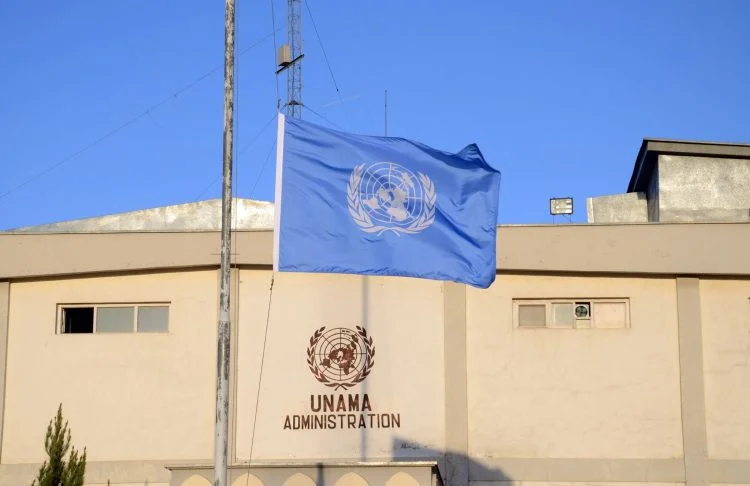ISLAMABAD: On Tuesday, the Pakistan Army formally arraigned former spymaster Lt. Gen. (retired) Faiz Hameed. Court martial proceedings against him began in August. He faces charges of engaging in political activities and violating a law on official secrets.
Hameed served as the director-general of Pakistan’s powerful Inter-Services Intelligence (ISI) agency from June 2019 to October 2021. In August, authorities arrested him over accusations of land grabbing and taking valuables and property from the owner of a housing society. At the time, the military announced that he had committed multiple violations of the Pakistan Army Act after his retirement. They initiated court martial proceedings and placed him in custody.
People widely view the former general as having been close to former prime minister Imran Khan. Khan has also been in jail since last year. He faces a slew of charges, that he claims are politically motivated.
Also See: Faiz Hameed Case: Pakistan Military Accountability
Hameed Arraigned
In a statement released on Tuesday, the army’s media wing said Field General Court Martial proceedings had started against Hameed on Aug. 12 under the Pakistan Army Act.
“In first place, Lt Gen Faiz Hameed (Retd) has been formally arraigned on charges of engaging in political activities, violations of Official Secret Act detrimental to safety and interest of the state, misuse of authority & government resources and causing wrongful loss to a person(s),” the military said.
The statement added that authorities were also investigating Hameed for “creating agitation and unrest.” This unrest led to multiple incidents of “instability,” including riots by alleged pro-Imran Khan protesters on May 9, 2023. During the riots, protesters attacked and damaged government and military buildings. The military claimed that this was done at “the behest of and in collusion with vested political interests.”
The statement concluded, “The law is affording Hameed all legal rights.”
Investigations against senior officers of the all-powerful army are extremely rare in Pakistan. This is especially true in a country where the military has ruled for almost half of its history. Moreover, the military continues to wield extraordinary power, even during periods of civilian rule.
Political Turmoil
In the past, the ruling Pakistan Muslim League-Nawaz (PML-N) party, led by Prime Minister Shehbaz Sharif, widely accused Hameed. They alleged that he brought down the government of Shehbaz’s elder brother, Nawaz Sharif, in 2017. The PML-N alleges Hameed worked with then opposition leader Imran Khan to plot Nawaz’s ouster through a series of court cases, culminating in the Supreme Court’s disqualifying of him from office in 2017 for failing to disclose income and ordering a criminal investigation into his family over corruption allegations.
People widely believe that the military propelled Khan to power in 2018. Khan has been in jail since August 2023. However, since his ouster in a parliamentary no-trust vote, which he blames on the generals, he has waged an unprecedented campaign of defiance against the military establishment. The military has denied any involvement in his ouster but Khan has been public about the clash, which has led to the worst political turmoil in the South Asian nation in decades.
Many independent analysts say the unprecedented arrest and court-martial of Hameed could raise the heat on Khan and be the precursor to prosecuting the jailed former prime minister before a military court on charges of treason and attempting to incite a mutiny in the military.
ARREST
At the time of Hameed’s arrest in August, the army said it had held a detailed inquiry against him in compliance with the orders of the Supreme Court on a petition filed by the management of the Top City housing society.
The owner of Top City, Moeez Ahmed Khan, filed the petition. He claims that the former ISI chief “misused” his office. Under Hameed’s direction, crimes were committed against Moeez and his family. These crimes included raids on his residence and business offices. Additionally, Moeez and his family members were arrested.
The petition states that Hameed and his associates robbed the applicant and his family members of their properties. They also robbed the applicant of his business properties. Furthermore, they compelled the applicant to transfer his businesses into the names of those nominated by Hameed. Additionally, they registered false cases against the applicant, his family, and his employees.
The army’s media wing said in a statement after Hameed’s arrest, “Complying with the orders of the Supreme Court of Pakistan, the Pakistan Army undertook a detailed court of inquiry.” The inquiry aimed to ascertain the correctness of the complaints made against Lt Gen Faiz Hameed (Retd) in the Top City case.
“Consequently, appropriate disciplinary action has been initiated against Lt Gen Faiz Hameed (Retd), under provisions of Pakistan Army Act.”
Days after Hameed’s arrest, the Pakistani military said it had arrested three more retired officers in connection with the proceedings against the ex-spy chief.
Political parties and critics often accuse that the ISI spy agency interferes in politics and government in Pakistan.
This news is sourced from Arab News and is intended for informational purposes only.

![Pakistan army arraigns ex-ISI chief Faiz Hameed on charges of political activities, land grabbing, and violations of laws. [Image via Arab News]](https://southasiatimes.org/wp-content/uploads/2024/12/4553277-1103367372.webp)




